The purpose of this review is to test Gary Fong Lightsphere II Cloud by comparing the results produced by this diffuser to the images taken with a bare flash. The setups below include direct mode, bouncing off of ceiling (with and without an inverted dome), bouncing off of ceiling and walls (flash head tilted 45 degrees and rotated 90 degrees to the left), and also a ceiling bounce with the camera in a portrait (vertical) position.
The test environment is identical to the one described in Lightsphere II: Cloud vs. Clear test: relatively small room with white walls and low ceilings.
Please note that the results produced by Gary Fong Lightsphere II Cloud not only greatly depend on the surroundings, but also may vary with flash zoom settings and flash model. For this test, we use Canon Speedlite 580EX II set at 50mm zoom. (50mm is what Canon flashes default to when flash head is tilted.)
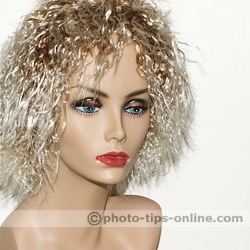 |
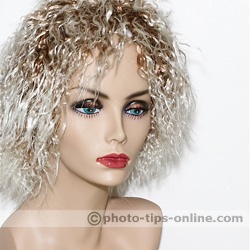 |
No surprise, Lightsphere II Cloud improves the images even in direct mode. It creates larger light source than the flash head itself; therefore, shadow edges are softer (not dramatic but pretty noticeable improvement). Also, the light bounced off of the ceiling, and walls make the shadows somewhat lighter.
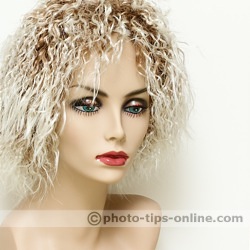 |
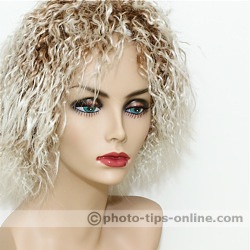 |
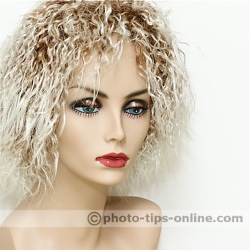 |
Pointing flash head toward a ceiling is one of the most typical ways to use Gary Fong Lightsphere II. From the images above, you can see that Lightsphere adds fill light to the images and opens up (makes lighter) the shadows created by the light bounced from the ceiling.
Removing the inverted dome (right image above) reduces the fill component. If you install the dome, fill light is stronger.
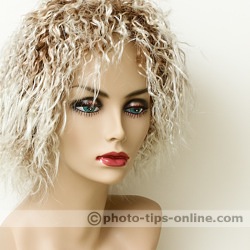 |
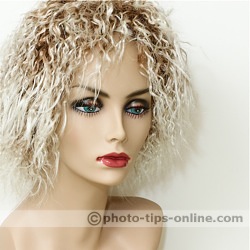 |
This setup is similar to the previous no dome setup, but in this test, we tilt the head position to 45 degrees and rotate it to the left. This way, we get a different light direction. Once again, you can easily see that the fill light is being added to the image. Attaching the dome would simply add more fill light.
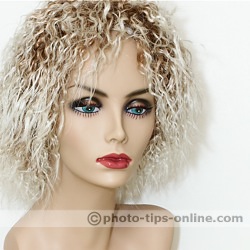 |
The purpose of this last test is to demonstrate how the images look like when Gary Fong Lightsphere II Cloud is used for a vertical shot. You can see the light coming from the left of the camera, but it still stays above lens axis, which makes Lightsphere usable without a flash bracket.
Gary Fong Lightsphere II Cloud can be used for taking pleasing images in a presence of light-colored walls and low ceiling. It softens shadow edges to some degree and generally makes the shadows appear lighter. You can vary the amount of fill light by adding and removing the inverted dome. Also, you can change the direction of your light by pointing the flash head not only towards a ceiling, but also towards a side wall.